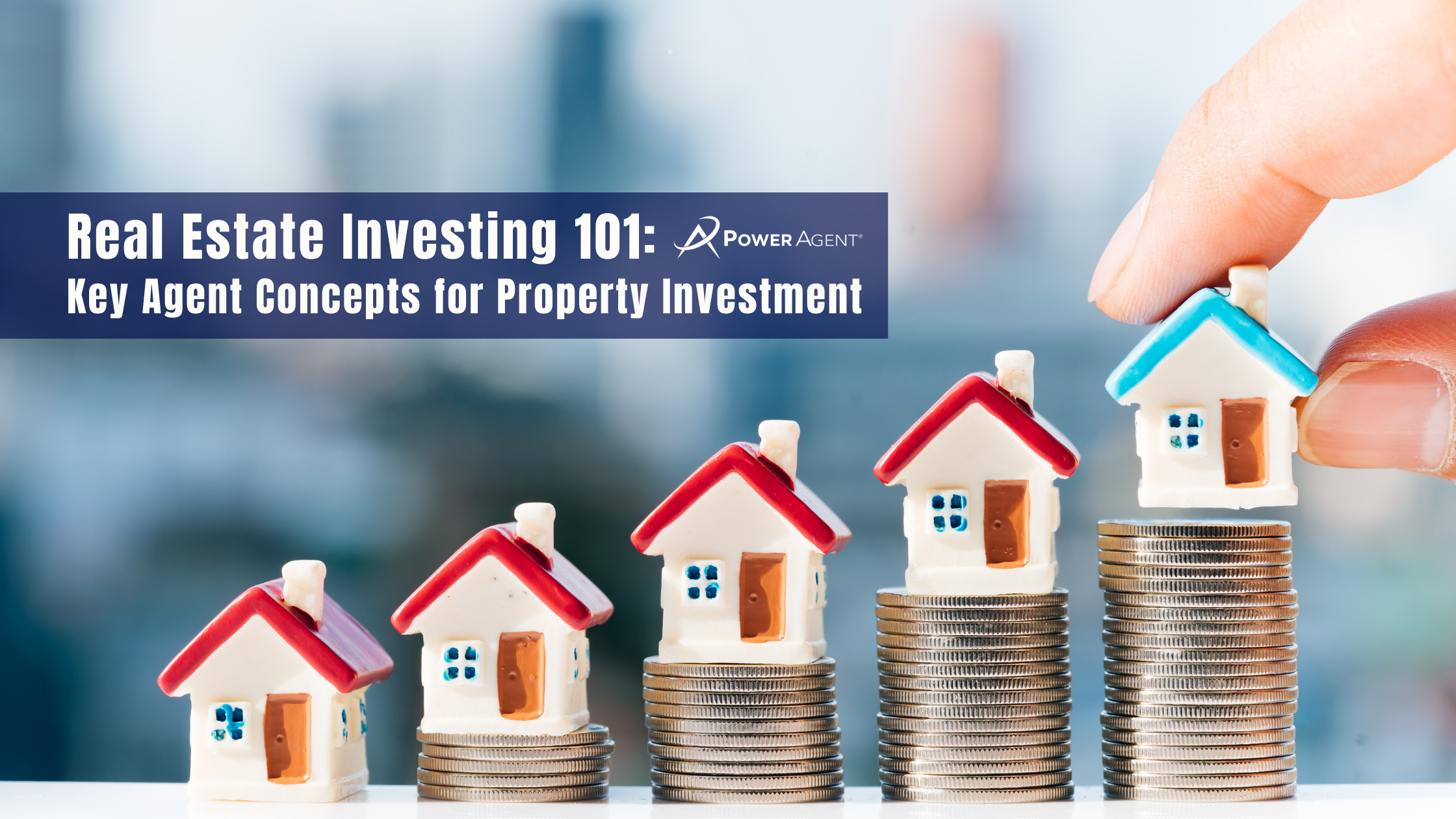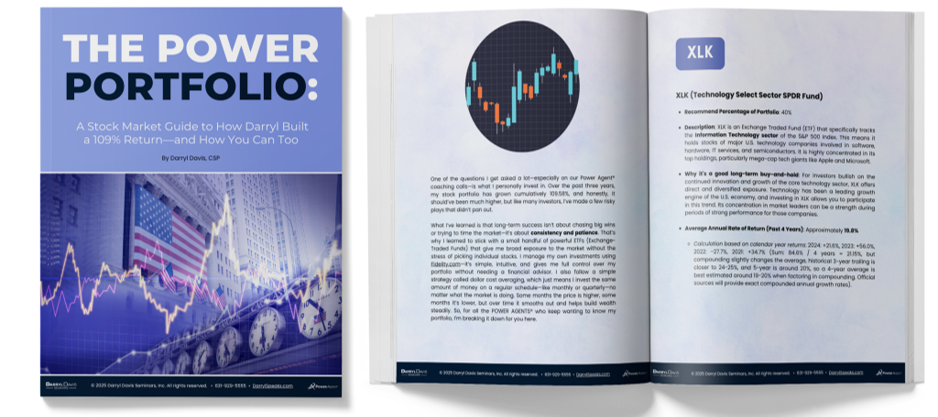
Real Estate Investing 101: Key Agent Concepts for Property Investment
As a real estate agent, you already know the power of owning property.
Have you considered how you can leverage this knowledge to build personal wealth through real estate investing? Whether you’re a seasoned professional or just starting out, this article will give you applicable strategies and tips to help you navigate the journey.
“Real estate cannot be lost or stolen, nor can it be carried away. Purchased with common sense, paid for in full, and managed with reasonable care, it is about the safest investment in the world.” – Franklin D. Roosevelt
If you have been considering real estate investing, we are here to help! Discover how to get started as a real estate investor, understand key concepts, decide on an effective investment strategy, explore smart financing tips, and build a robust investment portfolio. It’s time to turn your real estate career into a wealth-building power move.
Starting Your Journey as a Real Estate Investor
Let’s start with a roadmap. Jumping headfirst into real estate investing might sound thrilling, but without a well-planned path, you’re more likely to spin your wheels than to take off.
Begin your investing journey by setting definitive goals. Are you looking for a source of passive income, capital growth, or both? What’s your risk tolerance level? Having clear investment goals will complement a strategy that best suits your needs. The arena of real estate investing boasts a myriad of strategies, from long-term buy-and-hold, fix-and-flip, wholesaling, Airbnb vacation rentals, commercial real estate investment, and more. Each offers unique advantages, challenges, and risk factors.
A crucial point to remember is to conduct thorough due diligence before plunging into any investment. The research will unveil potential roadblocks, challenges, and opportunities associated with the property or strategy you’re considering.
Related reading: Over 90% of the world’s millionaires have been created through investing in real estate.
Related reading: Real estate investment trusts (REITs) have outperformed the S&P 500, Dow Jones Industrial Average, and Nasdaq Composite over the past 20 years.
Key Concepts Every Real Estate Investor Should Know
Real estate investing is often described as an I.D.E.A.L. investment. This stands for:
- Income (from rental income)
- Depreciation (tax advantages)
- Equity (building equity over time)
- Appreciation (growth in value over time)
- Leverage (using borrowed funds to increase potential return)
An essential aspect of real estate investing is conducting thorough due diligence. This involves researching market conditions, understanding property values, evaluating rental rates, and familiarizing yourself with local regulations, which you, as an agent, already have as an advantage.
Success in real estate investing isn’t just about making quick profits; it’s also about building lasting wealth. For this, you need to build a diversified real estate investment portfolio. This doesn’t necessarily mean purchasing many properties. Instead, it implies diversifying based on property type, location, risk level, and investment strategy, creating a risk-adjusted returns profile.
Deciding on Your Investment Strategy: The Pros and Cons
Building personal wealth through real estate investing is a journey paved with strategic decisions. Selecting the most beneficial investment strategy entails understanding your goals, conducting thorough research, and leveraging your real estate professionalism. Various real estate investing strategies flourish in different market conditions, and they offer unique sets of pros and cons.
- Long-term buy-and-hold – This strategy involves holding onto properties for an extended period, relying on their appreciation and rental income as a wealth-building tool. The main advantages of this approach include a stable cash flow, potential real estate appreciation over time, tax advantages, and low transaction costs relative to other forms of investment. However, it requires a large initial investment and potentially dealing with tenants and property maintenance, which demands both time and effort.
- Fix-and-flip – As the name suggests, this strategy revolves around buying a property at a lower cost, refurbishing it, and selling it for a profit. The benefits are fairly apparent: potential for high profits in a much shorter term than buy-and-hold. Yet, the downsides such as potential cost overruns and market uncertainties make it a higher risk investment method. Experience in renovation and a solid understanding of the local market are indispensable in this field.
- Wholesaling – Have you ever considered playing the middleman? This doesn’t involve owning the actual property—instead, you are signed under contract with the seller, find potential buyers, and transfer the contract to the buyer for a fee. This strategy requires no upfront capital investment and provides quick returns. However, it necessitates a broad network of buyers and sellers and excellent negotiation skills.
- Airbnb vacation rentals – Turning properties into vacation rentals provides a different cash flow approach. Occupancy rates and rental income can be much higher compared to long-term rentals, but they also fluctuate more. Dealing with frequent tenant turnovers and operating in a field subject to potential regulatory changes pose unique challenges.
- Commercial real estate – Commercial real estate involves investing in office buildings, shopping centers, or industrial properties. The potential for high returns and long-term leases can make this an attractive option, but it is offset by high upfront costs and longer vacancy periods. Professional knowledge in commercial real estate operations and marketing is preferred.
Each investment strategy presents unique advantages and risks. Your background in the real estate field can definitely give you a head start, but the ultimate key to success is careful planning and thoughtful decision-making. Remember to always adapt your strategy to align with your investing goals and risk tolerance.
Related reading: Commercial real estate has provided an average annual return of 9.5% over the past two decades.
The Takeaway
Real estate investment might seem daunting initially, but with the right mindset, knowledge, and strategic approach, you can indeed fortify your personal wealth. It’s fundamentally about aligning your investment strategy with your financial objectives, capacity for risk, and overall aspirations. Remember, it’s not just about growing personal wealth, it’s about fostering financial independence and achieving your long-term financial goals. Whether it’s the long-term benefit from buy-and-hold rentals or the immediate returns through fix-and-flip deals, your path to financial autonomy lies in your hands.
Learn more about the POWER AGENT® PROGRAM
- Join Darryl’s Inner Circle Facebook Group. We are always posting fresh ideas, training tools, strategies, and templates, along with hosting important, timely discussions with real estate professionals across the globe who are committed to their Next Level® of success and life.
- Subscribe to our newsletter. Click the button below to fill out a simple form and tap into new resources, free downloads, premium content, and exciting promotions.
- Reach out and talk to us. Not sure if this coaching program and community is right for you? Click that blue chat button on the bottom right of the screen, or call us at the number in the header. We are here to help!

Get the latest real estate training tips delivered to your inbox!
Not a POWER AGENT® yet? Give us a go! This comprehensive program provides affordable coaching, training, and customizable marketing tools for real estate agents. It’s proven to help thousands of agents significantly boost their listing inventory, solidify their business, cultivate lifelong customers, enhance authenticity and confidence, reduce stress, and craft fulfilling careers and lives. Join today and also get our all new stock portfolio guide for building wealth! POWER AGENTS®, find this guide in the Time and Money Management tab of your Classroom!
Check out the POWER AGENT® PROGRAM here!
